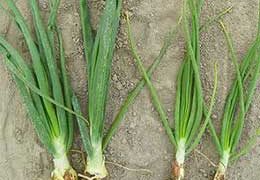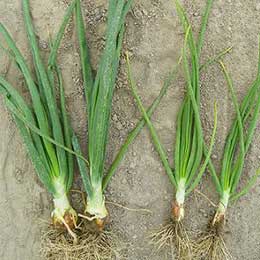Magnesium is an essential nutrient for onion growth and yield. It plays a critical role in photosynthesis, protein synthesis, and enzyme activation. This article will explore the importance of magnesium in onion cultivation and how to manage magnesium levels in the soil to optimize onion growth and yield.
Magnesium is a macronutrient that is required in significant amounts by plants for optimal growth and development. It is the central atom of the chlorophyll molecule, which is responsible for photosynthesis. Additionally, magnesium is required for protein synthesis and is involved in the activation of several enzymes that are essential for plant growth and metabolism.
According to the University of California Agriculture and Natural Resources, magnesium deficiencies in onions can result in chlorosis (yellowing of leaves), stunted growth, and reduced bulb size. Onions require between 1.5 and 3 pounds of magnesium per acre per year, depending on the soil type and other factors.
Magnesium deficiencies can be corrected by adding magnesium fertilizers to the soil. Common sources of magnesium fertilizers include dolomite lime, Epsom salts, and magnesium sulfate. It is essential to ensure that the fertilizer is spread evenly across the soil to prevent overapplication in some areas and underapplication in others.
In conclusion, magnesium is a crucial element for onion growth and yield. It is essential for photosynthesis, protein synthesis, and enzyme activation. Magnesium deficiencies can result in chlorosis, stunted growth, and reduced bulb size. By managing magnesium levels in the soil, farmers and agronomists can optimize onion growth and yield.
#Magnesium #OnionGrowth #PlantNutrition #SoilManagement #Agriculture































